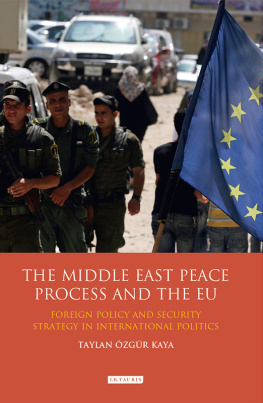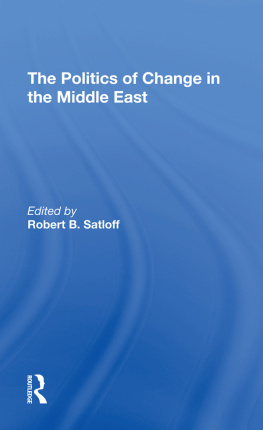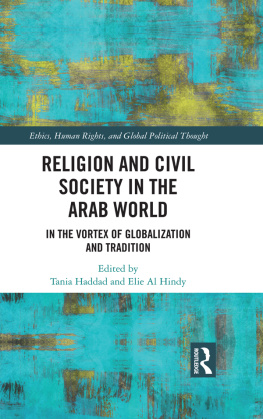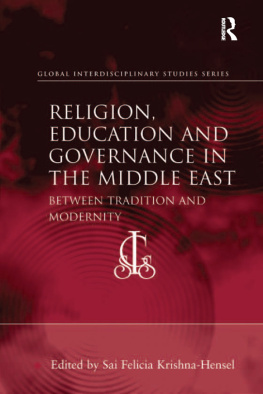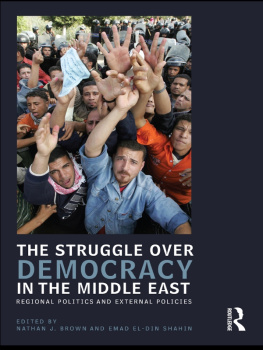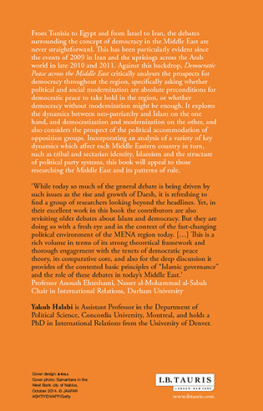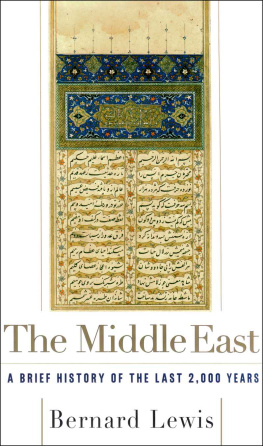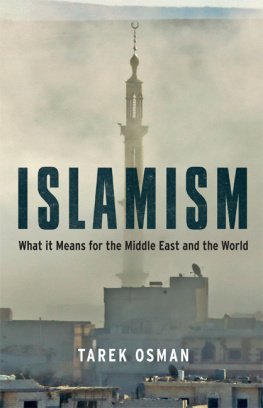Mohammed A. Bamyeh is Professor of Sociology at the University of Pittsburgh, USA, and the editor of International Sociology Review of Books. He specializes in the study of social movements and revolutions, the comparative history of ideas, and global sociology.

Published in 2012 by I.B.Tauris & Co Ltd
6 Salem Road, London W2 4BU
175 Fifth Avenue, New York NY 10010
www.ibtauris.com
Distributed in the United States and Canada
Exclusively by Palgrave Macmillan
175 Fifth Avenue, New York NY 10010
Copyright Editorial selection and Introduction 2012 Mohammad A. Bamyeh
Copyright Individual Chapters 2012 Thomas Brisson, Michaelangelo Guida, Lital Levy, Sanna Makhlouf, Nedal al-Mousa, Steve Tamari, Fatma Ttnc and Elizabeth Williams
The right of Mohammad A. Bamyeh to be identified as editors of this work has been asserted by the author in accordance with the Copyright, Designs and Patent Act 1988.
All rights reserved. Except for brief quotations in a review, this book, or any part thereof, may not be reproduced, stored in or introduced into a retrieval system, or transmitted, in any form or by any means, electronic, mechanical, photocopying, recording or otherwise, without the prior written permission of the publisher.
Library of Modern Middle East Studies 120
ISBN 978 1 84885 628 8
A full CIP record for this book is available from the British Library
A full CIP record for this book is available from the Library of Congress
Library of Congress catalog card: available
Printed and bound in Great Britain by CPI Antony Rowe, Chippenham
Camera-ready copy edited and supplied by the author
CONTENTS
Mohammed A. Bamyeh
Elizabeth Williams
Lital Levy
Sanaa Makhlouf
Steve Tamari
Michelangelo Guida
Fatma Ttnc
Thomas Brisson
Nedal Al-Mousa
ACKNOWLEDGEMENTS
T his book emerged out of a workshop entitled The Social Role of Intellectuals in the Middle East, organized in March 2008 in conjunction with the ninth annual meeting of the Mediterranean Research Programme of the Robert Schuman Centre at the European University Institute in Florence, Italy. I would like to acknowledge the financial and logistical support offered by the Mediterranean Programme, which helped bring together researchers and observers who had little direct connection with each other before, and thus helped start the collaboration out of which this volume emerged. Personally I would also like to thank Salim Tamari, who took part in the earlier stages of planning this book and offered helpful guidance both in formulating the topic and selecting participants. Many thanks also go to members of the workshop who participated early on but could not stay with the project, notably Shiva Balaghi, Sylvia Saba-Sadi, and Anice van Engeland. I am also particularly thankful to those who took part in our deliberations as observers and offered valued comments and contributions that helped us organize our thoughts better, in particular Michael Kennedy, Armando Salvatore, and Hatsuki Aishima.
Many thanks also go to participants in a follow-up Thematic Conversation session with the same title held in Boston in November 2009 in conjunction with the annual meeting of the Middle East Studies Association, and organized by a sub-group of the original workshops participants. We all learned a great deal from the engaged responses of the audience, who helped us clarify our central themes and focus our contributions on selected key ideas. The same is true for members of the Berlin seminar Europe in the Middle East, the Middle East in Europe, who generously commented in June 2011 on a summary presentation of this project. In this connection I am particularly thankful to Georges Khalil, Fadi Bardawil, and Elias Khoury for thorough critiques. Finally, many thanks are owed to the staff at I.B.Tauris and especially Jenna Steventon for editorial comments and encouragement, and Nicola Denny for invaluable help in putting the book in a publishable format.
Introduction:
The Social Dynamism of the Organic Intellectual
Mohammed A. Bamyeh
The question as to who qualifies as an intellectual, and moreover what counts as intellectual activity, are questions around which there is an enormous body of literature concerning the West, most recently addressed in John Michaels Anxious Intellects. In the case of the Middle East our group began from the ground up, asking such questions as: what are the distinctive features of intellectuals in the region? What makes a certain way of formulating ideas more readily propagated, accepted, or debated than otherwise in the public sphere? How do intellectuals influence public life and public debates? How does the work of intellectuals circulate under condition of relative openness or censorship, respectively? What is the audience of intellectuals, and how segmented or stable is it? What are the meaningful ways of measuring the influence of intellectuals in society? What sort of relation exists between intellectuals, street politics, and civil society? What are the main idioms of public and organic intellectual discourse? What are the institutional venues of public and organic intellectual life, and how effective, stable, or flexible are they? Do public intellectuals provide a common regional discourse that blends together sentiments in more than one country? How are intellectuals connected (in structured or ideational ways) to social movements? Is the level of activity of intellectuals in any given country a good predictor of the quality of political or other kinds of leadership?
These questions gained more currency with the revolutions of the Arab Spring that, lacking clear organizational or leadership structures, magnified the role of ideas in providing a sort of everyday intellectual compass, that is, a guide for revolution that operates in more diffuse ways than clearly defined organizations or hierarchies. The environment of the revolutions highlighted the role of everyday intellectual activity, since under conditions of spontaneity the revolutions needed to define themselves by themselves, and the best means to do that was through constant dialog in public gatherings. Indeed, most of the intellectual activity during the Arab revolutions tended to be of a type appropriate for movements characterized by spontaneity and lightness. Cairos Tahrir Square, for example, was not simply a central symbol of a revolution, but moreover a space permeated throughout by debating circles. Debates in the Square over basic meanings of now common termspeoplehood, regime, civic state, popular versus constitutional legitimacy, liberalism, freedom, enlightened awareness (way), and so onwere as constant as those over what the next step should be. The revolution, in a sense, was a conversation about meanings and ideas, none of which had been clarified before. The young members of the Muslim Brotherhood, for example, very quickly found out in revolutionary times that the tired slogan Islam is the solution had become even less compelling, since more than at any other time before, the slogan appeared to lack intellectual substance and the demand for depth that characterized revolutionary curiosity in general. And thus Islamic political thought itself developed at a faster pace in revolutionary times, since much more was expected of it than before.
While the studies in this volume were all begun before the Arab Spring, the questions they were based on have become more pressing after revolutionary movements required all intellectuals to think more seriously about their role in society. When we originally posed our research questions, we noted that while there existed a great body of literature on individual Middle Eastern intellectuals, there were few systematic studies of the social role of intellectuals as a specific social category. Yet, the systematic understanding of the social, as well as political and cultural, roles of intellectuals was crucial for the proper appraisal of several other flourishing areas of research and commentary in Middle East studies. Those included studies of civil society; leadership; social movement; the public sphere and the character of public debates. All these areas had clear relevance to understanding patterns and meanings of participation in the region.


